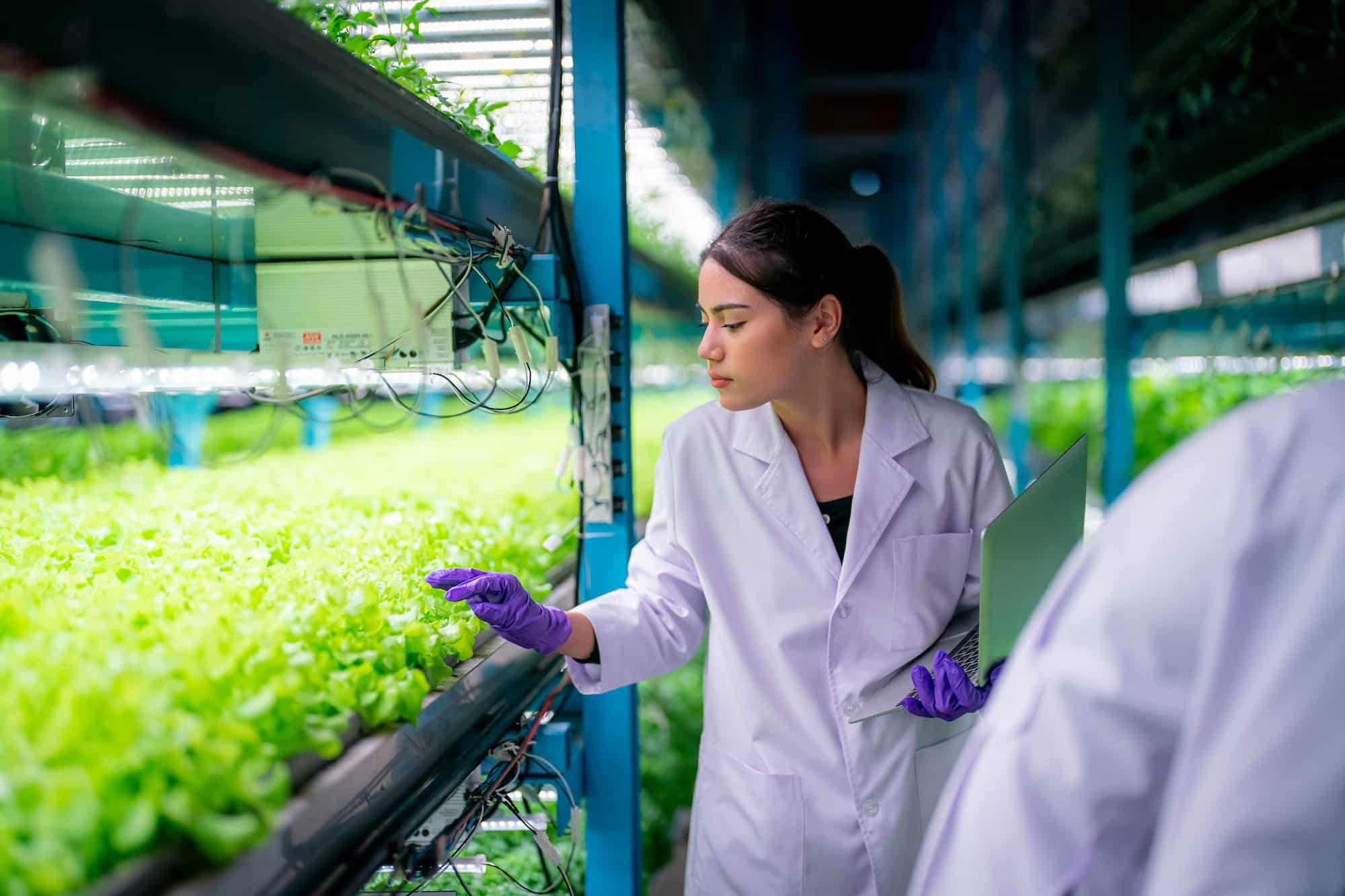As the global population continues to rise, the demand for food is increasing. However, traditional farming methods are struggling to keep pace. The pressures on land, water, and energy are mounting. The solution to this escalating crisis may lie in the sky, not on the ground. This is where vertical farming comes in, a concept that promises to revolutionize urban food production in the UK. But what exactly is vertical farming, and how does it work? Let’s explore this fascinating agricultural innovation.
The Concept of Vertical Farming
Before we delve into the intricacies of how vertical farming could revolutionize urban food production, it’s crucial to understand what exactly it is. Vertical farming is an innovative approach to farming that involves growing plants in stacked layers or vertically inclined surfaces. These vertical farms are usually contained in structures such as skyscrapers, used warehouses, or shipping containers.
Additional reading : What are the Advances in Biodegradable Packaging Materials for UK Supermarkets?
Such an approach allows for year-round crop production irrespective of weather conditions, dramatically decreases the amount of water used in farming, and potentially reduces the need for pesticides. The vertical orientation also means that these farms can produce more food per square meter compared to traditional agriculture. This makes vertical farming incredibly favourable in urban settings, where space is a premium.
The Potential of Vertical Farming in Urban Areas
In urban environments where land is scarce and expensive, vertical farms offer a compelling solution. They operate within controlled environments, allowing crops to grow at an optimal rate, reducing the time it takes for them to reach maturity. This is especially beneficial for cities like London, Birmingham, or Manchester, where the demand for fresh, locally grown produce is high.
In the same genre : What’s the Latest in Textile Recycling Innovations to Combat UK’s Fashion Waste?
By bringing food production closer to consumers, vertical farming reduces the carbon footprint associated with the transportation of food. It also presents an opportunity for city dwellers to reconnect with their food, understanding where it comes from and how it is produced. These farms can be integrated into existing urban infrastructure, such as disused warehouses or under-utilised rooftages, hence making efficient use of urban spaces.
The Role of Technology in Vertical Farming
Vertical farming is a high-tech solution to food production. It leverages modern technology for precise control over the growing conditions of plants. These include advanced hydroponic or aeroponic systems, which deliver nutrients directly to the plants’ roots without soil. These soilless farming methods use up to 95% less water than traditional farming.
LED lighting tuned to the specific needs of plants is also used, enabling photosynthesis in the absence of natural sunlight. Furthermore, automation and AI technologies control these systems, maintaining optimal conditions for growth and alerting farmers to any issues that may arise. This level of control over growing conditions results in food of consistent quality, free from the unpredictability of the weather and seasonal changes.
The Future of Vertical Farming in the UK
The future of vertical farming in the UK looks promising. Several vertical farms have already sprung up across the country, producing everything from salad greens to strawberries. These farms are successfully demonstrating that vertical farming isn’t just a scientific concept, but a viable solution to urban food production.
The UK government has also shown interest in vertical farming, recognising it as a potential solution for food security. It’s investing in research and development, offering incentives for urban farmers and encouraging businesses to adopt vertical farming methods. This, coupled with the UK’s technological prowess, makes the country an ideal place for the growth of vertical farming.
Vertical Farming: Challenges and Opportunities
While the prospect of vertical farming is exciting, it’s not without its challenges. High initial setup costs, sustainable energy use, and the need for skilled operators are some of the hurdles standing in the way. However, these challenges present opportunities for further innovation and technological advancement.
The potential of vertical farming in revolutionising urban food production is immense. It offers a sustainable, high-yield alternative to traditional agriculture, making it particularly apt for urban environments. With continued investment and innovation, vertical farming could very well be the future of urban food production in the UK, offering a fresh, sustainable, and local source of food for urban dwellers. With every bite they take from a vertically grown vegetable or fruit, they will be partaking in a revolution, a massive shift away from traditional farming towards a more sustainable and future-focused form of agriculture.
Technological Innovations Powering Vertical Farming
The successful implementation of vertical farming relies heavily on advanced technology. Over the past few years, several breakthroughs have been made that support this innovative method of farming.
One such technology is hydroponic systems. This method of farming doesn’t require soil; instead, plants’ roots are submerged in a nutrient solution, providing them with the necessary minerals to grow. Not only does this eliminate the need for arable land, but studies have also shown that hydroponic systems use up to 95% less water than traditional farming methods.
Other key technologies include artificial lighting and climate control systems. In indoor vertical farms, natural sunlight is often replaced with LED lights, which can be tuned to the specific needs of the plants, maximising their photosynthesis efficiency. Climate control systems, on the other hand, ensure the right temperature, humidity, and CO2 levels, creating the perfect growing conditions year-round. Both of these technologies help to accelerate the growth of the crops, leading to higher yields and more efficient food production.
The integration of AI and automation in vertical farming is another crucial aspect. By utilising smart agriculture technologies, farmers can optimise their operations, maximise yields, and minimise wastes. For instance, sensors can monitor the conditions in the farm and automatically adjust the lighting, temperature, and nutrient solution to maintain optimal growth conditions. AI can also predict potential plant diseases, allowing farmers to take preventative measures before it’s too late.
Conclusion: The Impact of Vertical Farming on the UK’s Food Security
The UK is facing a multitude of challenges concerning food security, climate change, and urbanisation. Traditional farming methods are struggling to keep up with the increasing demand for food while also dealing with the environmental impact of their operations. However, vertical farming presents an innovative solution to these issues.
By embracing vertical farming, the UK can significantly boost its food production capabilities without expanding its agricultural land. Vertical farms can produce fresh produce year-round, regardless of the weather conditions, making them a reliable source of food. This could drastically reduce the UK’s dependence on imported goods, improving its food security.
Vertical farming also offers a more sustainable approach to agriculture. It uses significantly less water compared to traditional farming, and the controlled indoor environment reduces the need for pesticides and fertilisers, lowering its environmental impact.
Furthermore, vertical farming could play a crucial role in the renewable energy sector. By integrating vertical farms with renewable energy sources such as solar or wind power, these farms could operate with a lower carbon footprint.
While vertical farming is still in its early stages in the UK, its potential is undeniable. With continued research, technological advancements, and government support, vertical farms could revolutionise the country’s food production system, offering a sustainable and efficient solution for future food production.











